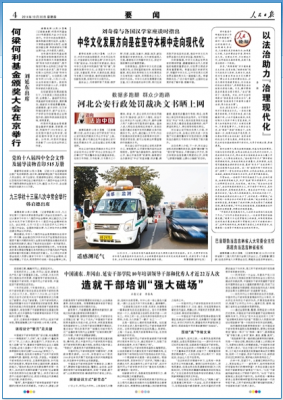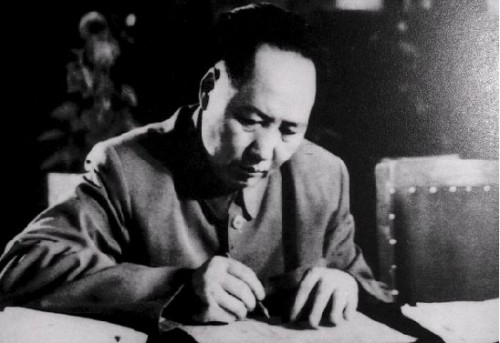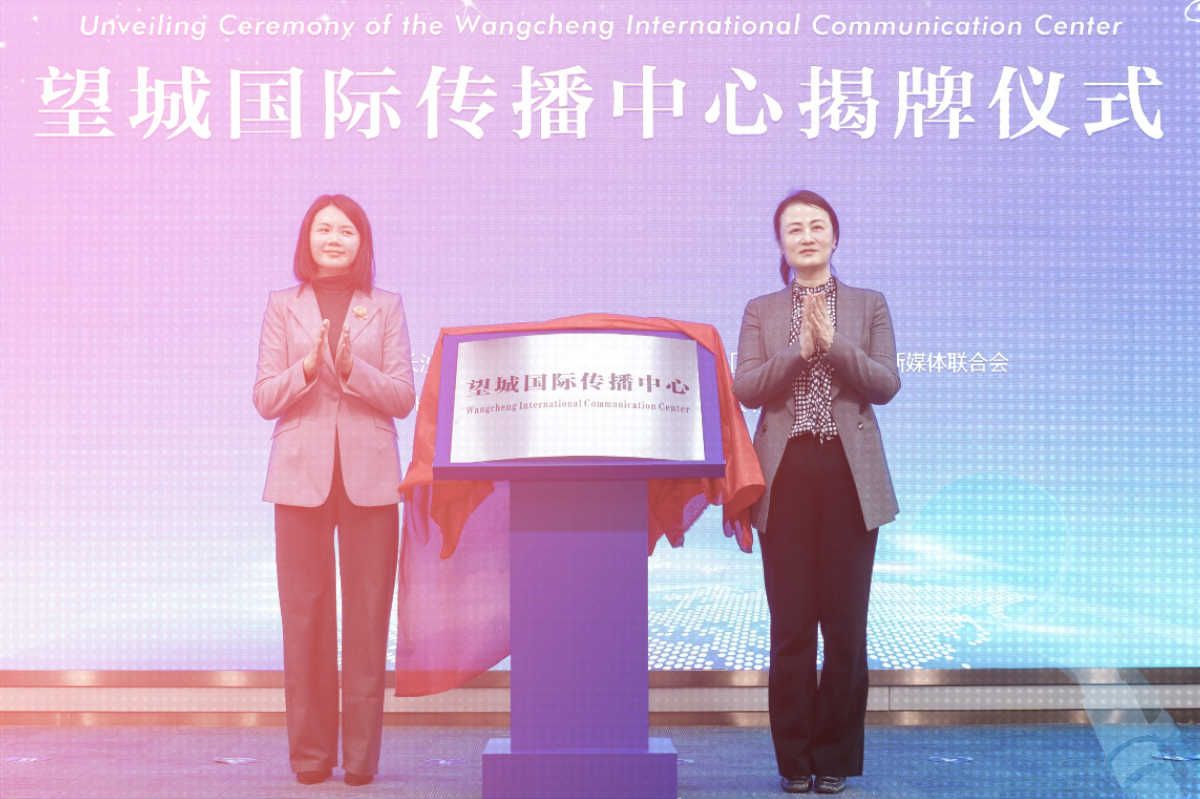As everyone struggles to unpack the significance of the “Decision” on “governing in accord with the law” (依法治国) emerging from the recent 4th Plenum, the clues continue to confuse.
Take, for example, this commentary appearing in the “People’s Forum” section on page four of today’s People’s Daily.
A cursory reading would suggest the piece is what it seems to be — an anthem to “rule of law” (法治) that categorically rejects its evil twin, the autocratic “rule by man” (人治). In the People’s Daily Online version, a single sentence is bolded: “Nevertheless, some leading cadres are still obsessed with rule by man. In their eyes, legal process has too many limitations, and they think it’s better and more effective to deal with certain ‘defects’ by applying the flexible methods of rule by man.”

But if you think this is a simple struggle between the forces of light and dark, read more carefully.
The second paragraph of the piece praises the “Fengqiao experience” (枫桥经验), which as CMP director Qian Gang explained a year ago — when Xi Jinping surprised many by raising the specter — is a relic from one of the darkest chapters of contemporary Chinese “rule by man” under the Communist Party.
The fanning to life of this Mao-era term is a lamentable surprise, the latest reminder of those chilly winds that have lately been blowing so strongly from the left, particularly as we near the 120th anniversary on December 26 of Mao Zedong’s birth.
The “Fengqiao experience” derives from the socialist education movement of the early 1960s — ahead of the Cultural Revolution — known as the “Four Cleanups” because they targeted the four so-called “reactionary elements,” or silei fenzi (四类分子), referred to landlords, wealthy peasants, counterrevolutionaries and evildoers (坏分子).

While the socialist education movement meant violent purging of “reactionary elements” in many areas of China at the time, the approach in Fengqiao was different, as described in several articles in the official People’s Daily at the end of the 1970s.
A commentary published in the People’s Daily on September 5, 1978, talked about how “Fengqiao District in Zhejiang’s Zhuji County relied on the masses to carry out on-site rectification of reactionary elements, reforming the vast majority of them into self-supporting laborers for the law.” “Their successful experience,” the article said, “was praised by Mao Zedong, and was known as a red flag on the front lines of public security.”
The question, then, is how to reconcile this dusting off of the “Fengqiao experience” — this model, the People’s Daily tells us today, “full of vitality” — with the overtures we are now seeing about the need for leaders and citizens alike to abide by rule of law?
We’ll leave it there. Happy reading.
“‘Modernizing Governance’ With the Aid of Rule of Law” (以法治助力“治理现代化”)
Li Zheng (李拯)
People’s Daily, p. 4
October 30, 2014
I often hear grassroots-level cadres talk about the “two dilemmas” of petitioning work. Faced with the extreme behavior of some groups of petitioners [seeking redress for various issues], if they satisfy their demands this might invite even more extreme behavior; and if they simply ignore them this will just gather up tensions and affect long-term stability. It’s not right if you handle the case, and its not right if you don’t handle it. This state of hesitation shows us one aspect of grassroots governance.
In fact, despite the difficulty of these “two dilemmas,” there is a way out. The “Fengqiao experience” (枫桥经验) remains a fresh approach today, full of possibility precisely because it pays attention to the use of rule of law methods to dissolve tensions, so that “the demands of the masses are resolved reasonably, unreasonable demands dealt with through targeted education, and illegal conduct handled properly in accord with the law” — and the two dilemmas are resolved within the framework of rule of law.
We can see that in resolving difficult grassroots tensions, “rule of law” provides us with a key. In this regards, the 4th Plenum clearly talks about “the promotion of rule of law in grassroots governance” (推进基层治理法治化), and it emphasizes that “leading cadres at various levels must take the lead in respecting the law and take the lead in handling matters in accord with the law.”
In fact, in actual practice, a number of leading cadres to not favor rule of law methods. Some local areas, as soon as they encounter negative news will change out a local leader to calm the situation down, without asking any questions about the merits and demerits of the case. But before long the official who was removed will be returned to a position at the same level — and how can such [a system of] accountability win the support of the people?
If the only hope is to calm a situation down, if there are no questions of legal accountability and one side is favored in a simplistic balance between the “strong” and the “weak,” this might bring short-term relief of public anger. But how can the authority of rule of law be established for the longer term?
It seems on the surface that expedient means that flout the law are effective, but they bring a disastrous erosion of the foundation of trust between the government and the people . . .
Faced with discord between human feeling and legal principles in the process of governance, with the competing of interests and concepts, and the testing of strength between doubt and trust, if rule of law becomes the measuring stick for the conduct of citizens as well as the administrative method applied by the government, then government credibility can grow in the fertile soil of rule of law and dramatically lower the cost of governance.
When the “Wenling nail house” (温岭最牛钉子户) incident caused such an uproar, the local government did not resort to violence or forced demolition, nor did they agree to demolition compensation surpassing [that stipulated by] the law. In the end, the “nail houser” and the government reached a compromise within the framework of rule of law. This “gentle handling of a demolition case” left in its wake a clear rule of law precedent: citizens defending their rights in accord with the law, the government applying policy in accord with the law, and opposition could be transformed into cooperation, good governance found amid tension.
Nevertheless, some leading cadres are still obsessed with rule by man (人治). In their eyes, legal process has too many limitations, and they think it’s better and more effective to deal with certain “defects” by applying the flexible methods of rule by man. . . [NOTE: bolded as at People’s Daily Online]
“China’s history has developed to this point, and I’m afraid the methods of rule by man has already run its course,” one member of the Standing Committee of the CPPCC wisely said in 1978. . . Making this happen relies not just on declaration from the national level, but also requires the common efforts of each and every leading cadre in practicing rule of law.





















